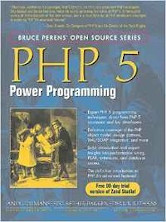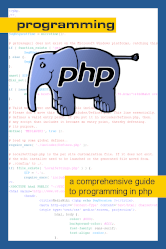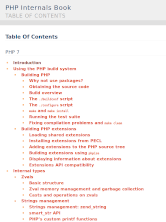Last Updated on June 14, 2023
4. PHP 5 Power Programming by Andi Gutmans, Stig Bakken, Derick Rethans
 In PHP 5 Power Programming, PHP 5’s co-creator and two leading developers show you how to make the most of PHP 5’s industrial-strength enhancements in any project, no matter how large or complex.
In PHP 5 Power Programming, PHP 5’s co-creator and two leading developers show you how to make the most of PHP 5’s industrial-strength enhancements in any project, no matter how large or complex.
Their unique insights and realistic examples illuminate the language’s new object model, powerful design patterns, improved XML Web services support, and much more. Whether you are creating web applications, extensions, packages, or shell scripts, or migrating PHP 4 code, here are high-powered solutions you will not find anywhere else.
Review syntax and master its object-oriented capabilities, from properties and methods to polymorphism, interfaces, and reflection.
The book enables users to:
- Master the four most important design patterns for development
- Write powerful web applications: handle input, cookies, session extension, and more
- Integrate with MySQL, SQLite, and other database engines
- Provide efficient error handling that is transparent to your users
- Leverage PHP 5’s improved XML support including parsing, XSLT conversions, and more
- Build XML-based web services with XML-RPC and SOAP
- Make the most of PEAR: work with the repository, use key packages, and create your own
- Upgrade PHP 4 code to PHP 5, compatibility issues, techniques, and practical workarounds
- Improve script performance: tips and tools for PHP optimization
- Use PHP extensions to handle files/streams, regular expressions, dates/times, and graphics
- Create original extensions and shell scripts
This book is part of Bruce Perens’ Open Source Series. All books in this series are released under the Open Publication License, v1.0 or later.
5. Programming PHP by Wikibooks
 Programming PHP is billed as a comprehensive guide to programming in the language.
Programming PHP is billed as a comprehensive guide to programming in the language.
It covers the basics of the programing languages before moving on to some advanced PHP including object oriented programming, templating, libraries, frameworks, and security.
The text is available under the Creative Commons Attribution-ShareAlike License.
6. PHP Internals Book by Julien Pauli, Nikita Popov, Anthony Ferrara
 This book is a collaborative effort between several developers of the PHP language to better document and describe how PHP works internally.
This book is a collaborative effort between several developers of the PHP language to better document and describe how PHP works internally.
This book is primarily targeted at developers who have experience in the C programming language. However, wherever possible we will attempt to distill the information and summarize it so that developers who don’t know C well, will still be able to understand the content.
The PHP internals book is licensed under a Creative Commons Attribution-NonCommercial-ShareAlike 4.0 International License.
Next page: Page 3 – PHP Pandas and more
Pages in this article:
Page 1 – PHP: The Right Way and more books
Page 2 – PHP 5 Power Programming and more
Page 3 – PHP Pandas and more
All books in this series:
| Free Programming Books | |
|---|---|
| Ada | ALGOL-like programming language, extended from Pascal and other languages |
| Agda | Dependently typed functional language based on intuitionistic Type Theory |
| Arduino | Inexpensive, flexible, open source microcontroller platform |
| Assembly | As close to writing machine code without writing in pure hexadecimal |
| Awk | Versatile language designed for pattern scanning and processing language |
| Bash | Shell and command language; popular both as a shell and a scripting language |
| BASIC | Beginner’s All-purpose Symbolic Instruction Code |
| C | General-purpose, procedural, portable, high-level language |
| C++ | General-purpose, portable, free-form, multi-paradigm language |
| C# | Combines the power and flexibility of C++ with the simplicity of Visual Basic |
| Clojure | Dialect of the Lisp programming language |
| ClojureScript | Compiler for Clojure that targets JavaScript |
| COBOL | Common Business-Oriented Language |
| CoffeeScript | Transcompiles into JavaScript inspired by Ruby, Python and Haskell |
| Coq | Dependently typed language similar to Agda, Idris, F* and others |
| Crystal | General-purpose, concurrent, multi-paradigm, object-oriented language |
| CSS | CSS (Cascading Style Sheets) specifies a web page’s appearance |
| D | General-purpose systems programming language with a C-like syntax |
| Dart | Client-optimized language for fast apps on multiple platforms |
| Dylan | Multi-paradigm language supporting functional and object-oriented coding |
| ECMAScript | Best known as the language embedded in web browsers |
| Eiffel | Object-oriented language designed by Bertrand Meyer |
| Elixir | Relatively new functional language running on the Erlang virtual machine |
| Erlang | General-purpose, concurrent, declarative, functional language |
| F# | Uses functional, imperative, and object-oriented programming methods |
| Factor | Dynamic stack-based programming language |
| Forth | Imperative stack-based programming language |
| Fortran | The first high-level language, using the first compiler |
| Go | Compiled, statically typed programming language |
| Groovy | Powerful, optionally typed and dynamic language |
| Haskell | Standardized, general-purpose, polymorphically, statically typed language |
| HTML | HyperText Markup Language |
| Icon | Wide variety of features for processing and presenting symbolic data |
| J | Array programming language based primarily on APL |
| Java | General-purpose, concurrent, class-based, object-oriented, high-level language |
| JavaScript | Interpreted, prototype-based, scripting language |
| Julia | High-level, high-performance language for technical computing |
| Kotlin | More modern version of Java |
| LabVIEW | Designed to enable domain experts to build power systems quickly |
| LaTeX | Professional document preparation system and document markup language |
| Lisp | Unique features - excellent to study programming constructs |
| Logo | Dialect of Lisp that features interactivity, modularity, extensibility |
| Lua | Designed as an embeddable scripting language |
| Markdown | Plain text formatting syntax designed to be easy-to-read and easy-to-write |
| Objective-C | Object-oriented language that adds Smalltalk-style messaging to C |
| OCaml | The main implementation of the Caml language |
| Pascal | Imperative and procedural language designed in the late 1960s |
| Perl | High-level, general-purpose, interpreted, scripting, dynamic language |
| PHP | PHP has been at the helm of the web for many years |
| PostScript | Interpreted, stack-based and Turing complete language |
| Prolog | A general purpose, declarative, logic programming language |
| PureScript | Small strongly, statically typed language compiling to JavaScript |
| Python | General-purpose, structured, powerful language |
| QML | Hierarchical declarative language for user interface layout - JSON-like syntax |
| R | De facto standard among statisticians and data analysts |
| Racket | General-purpose, object-oriented, multi-paradigm, functional language |
| Raku | Member of the Perl family of programming languages |
| Ruby | General purpose, scripting, structured, flexible, fully object-oriented language |
| Rust | Ideal for systems, embedded, and other performance critical code |
| Scala | Modern, object-functional, multi-paradigm, Java-based language |
| Scheme | A general-purpose, functional language descended from Lisp and Algol |
| Scratch | Visual programming language designed for 8-16 year-old children |
| SQL | Access and manipulate data held in a relational database management system |
| Standard ML | General-purpose functional language characterized as "Lisp with types" |
| Swift | Powerful and intuitive general-purpose programming language |
| Tcl | Dynamic language based on concepts of Lisp, C, and Unix shells |
| TeX | Markup and programming language - create professional quality typeset text |
| TypeScript | Strict syntactical superset of JavaScript adding optional static typing |
| Vala | Object-oriented language, syntactically similar to C# |
| VHDL | Hardware description language used in electronic design automation |
| VimL | Powerful scripting language of the Vim editor |
| XML | Rules for defining semantic tags describing structure ad meaning |
